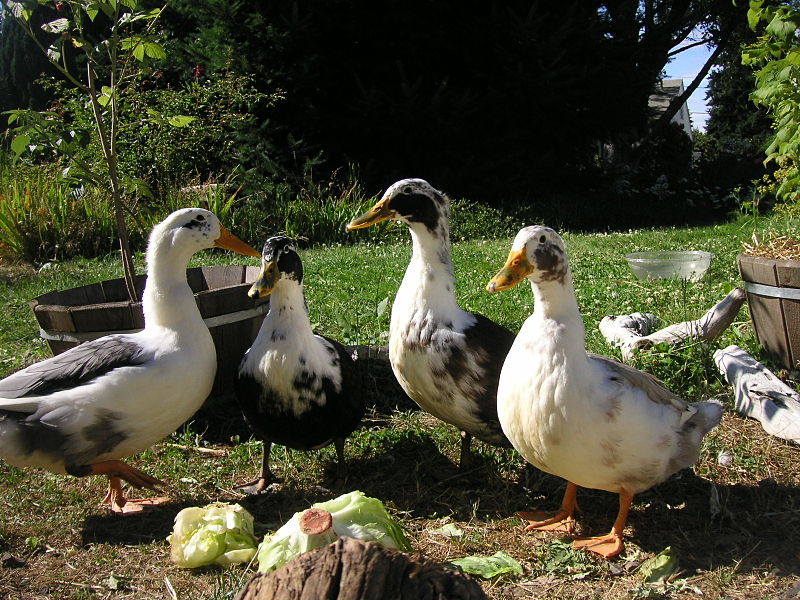How to Breed Ducks on a Farm

Breeding ducks for business purposes is not something unusual. Breeders and duck farmers have been raising this cute bird since the beginning of time mainly for meat. According to a study, man has devoured duck meat for over four thousand years. Even today, this egg laying web-footed bird makes a popular dish in France and various parts of Asia. Like other meats, duck is also a rich source of protein, along with various other important nutrients like iron and zinc. Breeders also keep some small flocks for egg production. Their eggs are bigger in size as compared to chicken eggs.
Besides business purposes, you can also breed ducks for fun and learning. Many people think that breeding ducks needs a lot of time and extra effort, which is not entirely true. They do not demand a lot of attention and can resist parasites and avian diseases on their own. Moreover, their breeding areas are not expensive can be maintained quite comfortably.
Instructions
-
1
Research different types of ducks and find the one that suits your purpose and is also available in your region. You find information from decent online resources as there are plenty of websites that deal with breeding ducks and there are also many sites that sell ducks, their eggs and equipment that can be used to breed them. If you want to raise ducks for fun and aesthetic purposes then go for White or Gray Call Ducks. These breeds are shorter and smaller than the regular ducks raised in duck farms.
-
2
Build a small duck shelter for your flock. A small shed or discarded chicken hutch will work beautifully. Be sure to follow a particular design for your duck shed as it should be big enough with plenty of ventilation to keep the ducks healthy. You can find many different websites that show excellent concepts and plans of different duck sheds that you can download and build yourself.
-
3
Ducks love swimming, so provide them with a pond, either natural or an artificial one. If you decide to build a pond then head over to your local hardware or gardening store as they usually have a good selection of fiberglass in-ground ponds that you can easily install yourself. If not, you can always hire a professional to design and build a nice size pond for you, but this will cost you a hefty price.
-
4
Grown ducks do not need human handouts to fulfil their daily feeding needs since they graze enough outside during the day time. However, you should always keep fresh water available for your ducks. The best part of keeping ducks is that they basically take care of themselves as they enjoy grazing for food. Make sure that you have ample space to keep a decent amount of ducks on your land.
-
5
There are many benefits of breeding ducks which you can take advantage of. According to the USDA’s National Nutrient Database, a 100-gram of roasted duck leg with skin gives you 217 calories and 11 grams of fat, the same as a broiler leg, prepared in the same way. But the difference comes when you go for skinless meat. A 100-gram skinless roasted duck breast contains only 140 calories and 2.5 grams of fat, as compared to 165 calories and 3.6 grams of fat provided by a skinless broiler breast.







